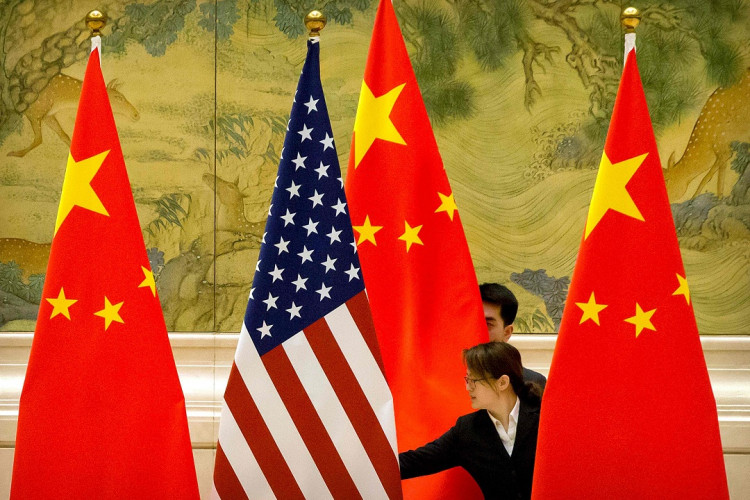Shares of semiconductor giants Intel and Advanced Micro Devices (AMD) dipped following reports that China will restrict the use of their chips in government computers. This move, part of a broader strategy to reduce reliance on foreign technology, threatens to impact billions in sales for these U.S. companies, highlighting the intensifying geopolitical tensions affecting global tech industries.
The Financial Times revealed that China's new procurement guidelines aim to phase out not only U.S. chips but also Microsoft's Windows operating system and foreign-made database software, favoring domestic alternatives instead. This directive aligns with Beijing's ongoing efforts to bolster its local semiconductor industry amidst U.S. export curbs on critical technologies, including advanced chips.
China's decision could significantly dent the earnings of chipmakers, with Intel's largest market in 2023 being China, accounting for 27% of its revenue, while AMD drew about 15% of its sales from the country. Analysts predict a considerable impact on the companies' bottom lines, with Bernstein analyst Stacy Rasgon estimating a potential hit of up to $1.5 billion for Intel and several hundred million dollars for AMD.
The move is part of a broader context of the U.S.-China technology war, with semiconductors at the heart of the conflict. Semiconductors, vital for a wide array of devices from smartphones to medical equipment, have become a battleground for supremacy between the two superpowers. The U.S. has implemented stringent export restrictions to limit Beijing's access to key semiconductor equipment and technologies, citing national security concerns and the potential military applications of advanced chips.
In response to these restrictions, China has ramped up its domestic semiconductor production, with its top 10 equipment makers reporting a 39% revenue increase in the first half of 2023 compared to the previous year. This growth reflects China's determination to achieve technological self-reliance in the face of external pressures.
The decoupling extends beyond semiconductors, affecting other tech sectors as well. Apple, for instance, has also been caught in the crossfire of rising Sino-U.S. tensions, with reports indicating that Chinese agencies and state-backed firms have restricted staff from using iPhones at work.
As the U.S. continues to tighten controls on technology exports to China, including recent regulations targeting U.S. chip design firm Nvidia's sales of advanced AI chips, the global tech landscape is undergoing a significant realignment. The repercussions of these policy shifts reverberate through global supply chains, financial markets, and international diplomacy, underscoring the complex interdependencies characterizing the tech industry.
This evolving scenario presents both challenges and opportunities as companies and countries navigate the shifting terrain of global tech geopolitics. The long-term implications of these developments remain uncertain, but one thing is clear: the tech decoupling between the U.S. and China is reshaping the future of the global technology landscape.






